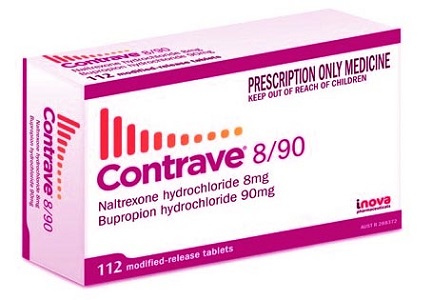Nikhil Prasad Fact checked by:Thailand Medical News Jul 30, 2024 1 year, 4 months, 3 weeks, 5 days, 2 hours, 41 minutes ago
Weight Loss News: Binge eating disorder (BED) is the most common eating disorder worldwide, characterized by repeated episodes of excessive food consumption and a lack of control over eating. Unlike typical overeating, BED episodes are accompanied by feelings of distress without compensatory behaviors like excessive exercise or vomiting. This
Weight Loss News report explores recent findings on a promising treatment for BED using a combination of naltrexone and bupropion (NB).
 New combination therapy shows promise for treating binge eating disorder
The Study
New combination therapy shows promise for treating binge eating disorder
The Study
Researchers from various prestigious Egyptian institutions, including Alexandria University, Suez Canal University, Elsheikh Zayed Specialized Hospital, Al-Azhar University, Mansoura University, and the London School of Hygiene & Tropical Medicine-UK, conducted a comprehensive review to assess the effectiveness of NB in treating BED and its associated obesity.
Key Findings
The study conducted a systematic review and meta-analysis of existing research, incorporating both interventional and observational studies. The primary focus was on the impact of NB therapy on weight, body mass index (BMI), and the Binge Eating Scale (BES) in adults with BED.
-Weight Reduction
The use of NB combination therapy was found to be significantly effective in reducing weight among patients. Compared to their weight before treatment, patients on NB therapy showed a mean reduction of 8.52 units (95% CI: -10.01 to -6.94, p < 0.00001). This indicates a substantial improvement in weight management, which is crucial for individuals struggling with BED and obesity.
-BMI Reduction
In addition to weight loss, NB therapy also led to a significant reduction in BMI. The mean difference in BMI before and after treatment was -4.95 units (95% CI: -9.72 to -0.17, p = 0.04). Although there was some variability among the studies, the overall effect was positive, highlighting the potential of NB therapy to aid in long-term weight control.
-Binge Eating Scale (BES) Scores
The BES scores, which measure the severity of binge eating behaviors, also showed significant improvement with NB therapy. Patients experienced a mean reduction of 7.66 units (95% CI: -14.36 to -0.96, p = 0.02) in their BES scores, indicating a decrease in the frequency and severity of binge eating episodes. This reduction is crucial for improving the quality of life and psychological well-being of individuals with BED.
-EDE-Q Scores
The Eating Disorder Examination Questionnaire (EDE-Q) scores, which assess various aspects of eating disorder psychopathology, were also significantly reduced. The mean difference in EDE-Q scores before and after treatment was -7.65 units (95% CI: -12.80 to -0.51, p = 0.004), suggesting a notable improvement in eating disorder symptoms and overall mental health.
t;
-Safety and Tolerability
NB therapy was generally well-tolerated by patients. While some experienced mild side effects such as nausea during the initial titration period, these were manageable and did not require discontinuation of the treatment. Importantly, no severe adverse effects were reported, and the therapy did not lead to hypertensive crises or other significant cardiovascular issues. This favorable safety profile makes NB a viable option for long-term management of BED and obesity.
Implications for Treatment
The findings of this study suggest that NB therapy offers a promising pharmacological approach for treating BED and its associated obesity. Traditional treatments for BED, such as cognitive behavioral therapy (CBT) and interpersonal psychotherapy (IPT), although effective in reducing binge eating episodes, have not shown significant weight loss benefits. The combination of naltrexone and bupropion, however, addresses both binge eating behaviors and weight management, offering a comprehensive treatment option.
Conclusion
The study concludes that NB therapy is highly effective in treating BED, leading to significant improvements in weight, BMI, and binge eating behaviors. These findings provide hope for individuals struggling with BED and obesity, offering a new avenue for treatment that addresses both the psychological and physical aspects of the disorder.
The study findings were published in the peer-reviewed journal Psychiatry International.
https://www.mdpi.com/2673-5318/5/3/22
For the latest
Weight Loss News, keep on logging to Thailand Medical News.
Read Also:
https://www.thailandmedical.news/news/move-over-ozempic-and-wegovy-fermented-blackberries-the-new-anti-obesity-and-weight-loss-remedy
https://www.thailandmedical.news/news/gymnema-sylvestre-and-berberine-are-effective-natural-alternatives-for-obesity-treatment
